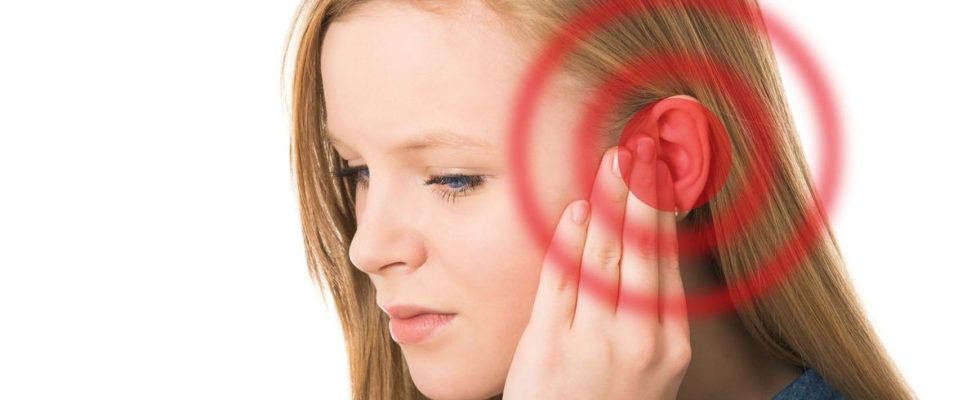Published on
Updated
Reading 2 mins.
Low-level laser therapy combined with photobiomodulation (use of certain light waves on intracellular targets) would be the most effective treatment for tinnitus, according to a study published in the Journal of Personalized Medicine.
Tinnitus is noise (hissing, buzzing, crackling, etc.) that you hear in one ear (or both) or in your head without having been emitted by a source from the outside world. Very disabling on a daily basis, they affect 750 million people worldwide. There are different treatments that can treat the cause of tinnitus but also relieve it. Brazilian scientists affiliated with the Optics and Photonics Research Center compared the main therapies currently used to treat tinnitus. According to them, the most effective therapy would be low-level laser therapy combined with photobiomodulation.
Treatments tested on idiopathic tinnitus
Low level laser therapy includes laser acupuncture and transmeatal low power laser stimulation. Laser acupuncture is a modern form of acupuncture that uses lasers instead of fine needles to stimulate acupuncture points. Low-power laser transmeatal stimulation involves stimulating the ear canal with a low-intensity laser.
For a month, the researchers tested alternative and complementary treatments on people suffering from idiopathic tinnitus (without an identified cause). The 100 participants (men and women aged 18 to 65) were randomly divided into 10 groups.
The treatments tested in this study were laser acupuncture, flunarizine hydrochloride, ginkgo biloba (a plant), and low-intensity laser stimulation of the inner ear canal (trans-meatal stimulation). These treatments were given alone or combined with vacuum therapy, ultrasound, ginkgo biloba or flunarizine. After each session, study participants were asked to complete a questionnaire about the impact of their tinnitus on their mental, physical and social health.
An anti-inflammatory and relaxing action
The patients who have benefited from the best results are those treated with laser acupuncture alone and with low-power transmeatal laser stimulation alone. Patients treated with trans-meatal low-power laser stimulation saw their condition improve more when the irradiation time was increased from 6 to 15 minutes. The study also reports that combinations of laser therapy with vacuum therapy or G. biloba, laser acupuncture alone, and flunarizine alone also had lasting therapeutic effects.
“The positive effects of these treatments include anti-inflammatory action and relaxation. We believe that laser therapy can increase peripheral blood flow, which may be the root cause of the problem in many cases, as well as stimulate inner ear cell proliferation and collagen production.” explained Vitor Hugo Panhóca, co-author of the study.
If this study is not the only one to show that laser therapy can relieve patients suffering from idiopathic tinnitus, it could on the other hand pave the way for the creation of a therapeutic protocol for dentists, ENT doctors, speech therapists and other specialists involved in the care of these patients.
Indeed, this work specifies for the first time the number of sessions necessary to obtain a significant improvement, but also the time and intensity of irradiation. In previous studies on this subject, the number of sessions and the intensity of the treatment varied considerably from one study to another.
